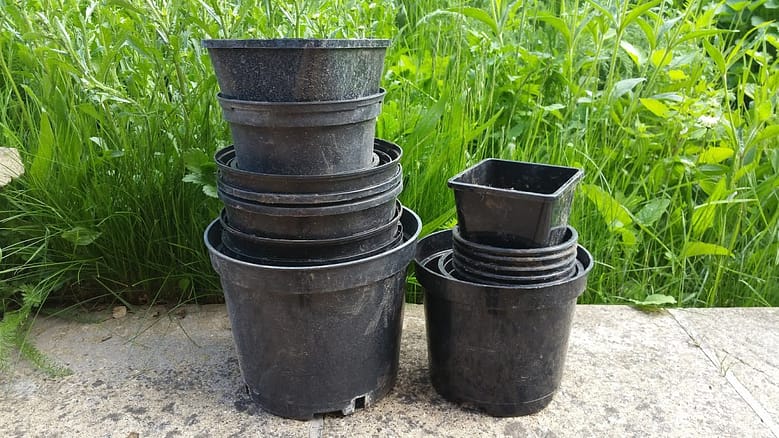It is time to take the problem of plastic seriously and say no to plastic. We all lead busy lives and plastic provides a practical solution, but the damage it is doing to our environment is mind boggling: 8 million tons of plastic get into the ocean every year. (National Geographic).
Not everyone is aware of what’s happening. Checkout staff at a well known supermarket looked bemused when I asked if the plastic bags in the fruit and vegetable section were biodegradable.
So you and I are aware of the problem but what are we doing about it? Are you saying NO to plastic? Are consumers doing enough to avoid plastic? Or is it someone else’s responsibility? Whose responsibility is it?
Consumers – Say No to Plastic
Changing the way you shop
I’ve changed the way I shop. I make a special effort to go to shops like Daily Bread in Cambridge who avoid plastic. They use biodegradable bags and they offer the opportunity to refill plastic bottles with washing up liquid, clothes washing liquid, conditioner and shampoo. This is the nearest shop of its kind to where I live so it does involve travelling.
Time Poor
Many people don’t have the either the time or inclination to do this: they go to their nearest supermarket and grab whatever is available. My partner nipped into a supermarket near his work to buy an orange. This supermarket sold oranges in plastic mesh bags.
I’ve done it myself: I purchased 4 apples on a polystyrene base all wrapped in plastic. I was shopping with my mother who has dementia and I could see myself having to chase after loose apples while trying to keep track of her.
As consumers deal with the struggles of daily life isn’t it up to retailers to make it easy for consumers to do the right thing.
On autopilot – Switch it off
It is difficult to think ahead sometimes. I recently purchased some plants, which were supplied in black plastic pots. It didn’t occur to me to ask whether they reused or recycled the black plastic pots. They don’t do either.
More about flowerpots
According to Which? there are 500 million plastic flowerpots in circulation every year. Most local authorities won’t recycle them.
According to the British Plastics Federation ‘plastic plant pots are eminently recyclable and reuseable.” (Which?) But the pots need to be collected in sufficient numbers to make it worthwhile for recycling companies.
“We run a recycling plant in Essex that only recycles pots (polypropylene) and trays (polystyrene). The problem we have is actually that we cannot get enough of the pots and trays to operate in a profitable way.”
Mike Parker reported to Which?
More garden centres need to collect them. Give your custom to the garden centres that recycle.
Choose taupe plant pots instead of black plant pots
A new taupe pot has been developed. Horticultural Trade Association members have selected a taupe-coloured polypropylene pot, manufactured by Aeroplas, which can be recycled in current recycling schemes. Working with RECOUP (Recycling of Used Plastics Limited), HTA are trying to raise awareness of the new pot with waste companies, local authorities and the general public. Nurseries have to opt in and only a few of them have. For a list of those who have opted in click here.
“The UK horticultural industry has worked together to be pro-active in moving away from plant pots which contain carbon black pigment. Following testing, and work done between RECOUP, and our long-standing member Aeroplas, the move to carbon pigment free detectable pigment as per WRAP guidelines is a major step forward. RECOUP will continue to help promote the message to Local Authorities that Plant Pots should now be included in kerbside collections.”
RECOUP

This weekend I went to Scotsdales and although many of the plants were in black plastic plant pots a great deal came in brightly coloured pots – pink, lilac, maroon, dark green and taupe!
What about making it law that garden centres have to take the black pots back or supply coloured pots that can be recycled? Could plastic pot manufacturers clean and supply the same pots again?
Manufacturers – Say No to Plastic
Jo Swinson, Member of Parliament for East Dumbartonshire calls on Easter egg manufacterers to eliminate plastic in Easter Eggs.
“The plastic waste associated with Easter eggs is symptomatic of a much wider problem across consumer industries, where companies could and should be doing more to combat plastic waste. Our oceans are precious – we need to do our bit to help preserve them.“
Choc Horror: Excess packaging and plastic waste in Easter Egg packaging in 2018 Jo Swinson MP
Is asking them nicely really going to make any difference to them? Surely governments must legislate to ensure that retailers eliminate plastic to protect the environment, which is more important than the presentation and sales of their eggs and ultimately their bottom line.
Plastic Manufacturers
It is not just product manufacturers who need to change how they package their goods. Plastic manufacturers need to stop manufacturing plastics that cannot be recycled, but they will continue to produce all types of plastic as long as someone will buy it.
If producers are forced to take back all the waste plastic they produce and pay the costs of disposing of it then maybe they would produce different types of plastic in the first place.
To address terrestrial sources of litter the government introduced the Producer Responsibility Obligations (Packaging Waste) Regulations 2007
These regulate packaging and packaging waste. They minimise packaging waste, restrict the use of certain substances and promote recovery, recycling and reuse of packaging, by obliging large packaging producers to fund recovery and recycling of a proportion of the packaging they place on the market.
Marine Strategy Part Three: UK Programme of Measures December 2015 – Department of Environment Food and Rural Affairs
Why not oblige them to fund recovery and recycling of all the packaging they place on the market rather than just a proportion of it?
The Government – Say no to plastic
The government is aware of the problem of plastic in the ocean. Its aim is to reduce litter on coastlines, monitor litter on the seafloor and in fulmars’ stomachs as a way of determining litter floating on the surface. They are trying to raise awareness and promote behaviour change among consumers. (Fulmars are seabirds.)
Through the application of the waste hierarchy the government is seeking to reduce the amount of waste produced in the first place, and thereafter to encourage the greater use, reuse and recycling of goods and materials.
Marine Strategy Part Three: UK Programme of Measures December 2015 – Department of Environment Food and Rural Affairs
It looks like its down to consumers – YOU and ME – to change things! Can we do it quickly enough to save our environment?
